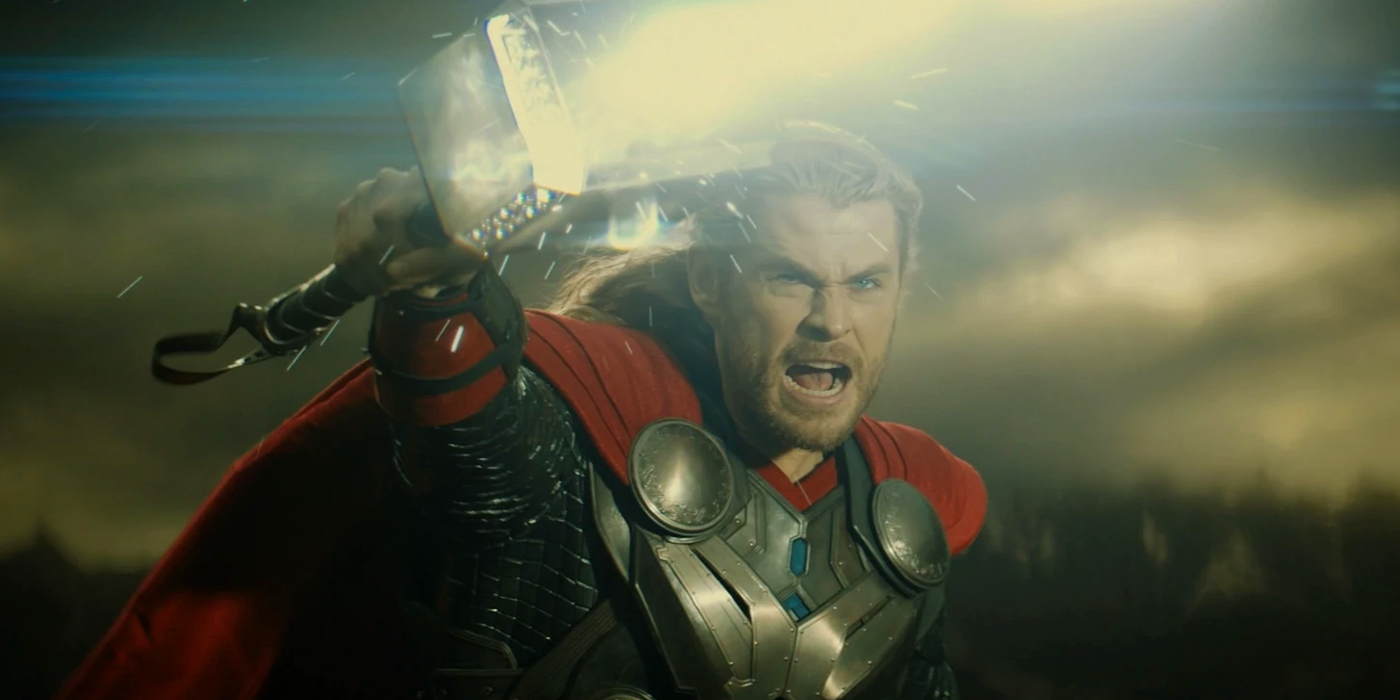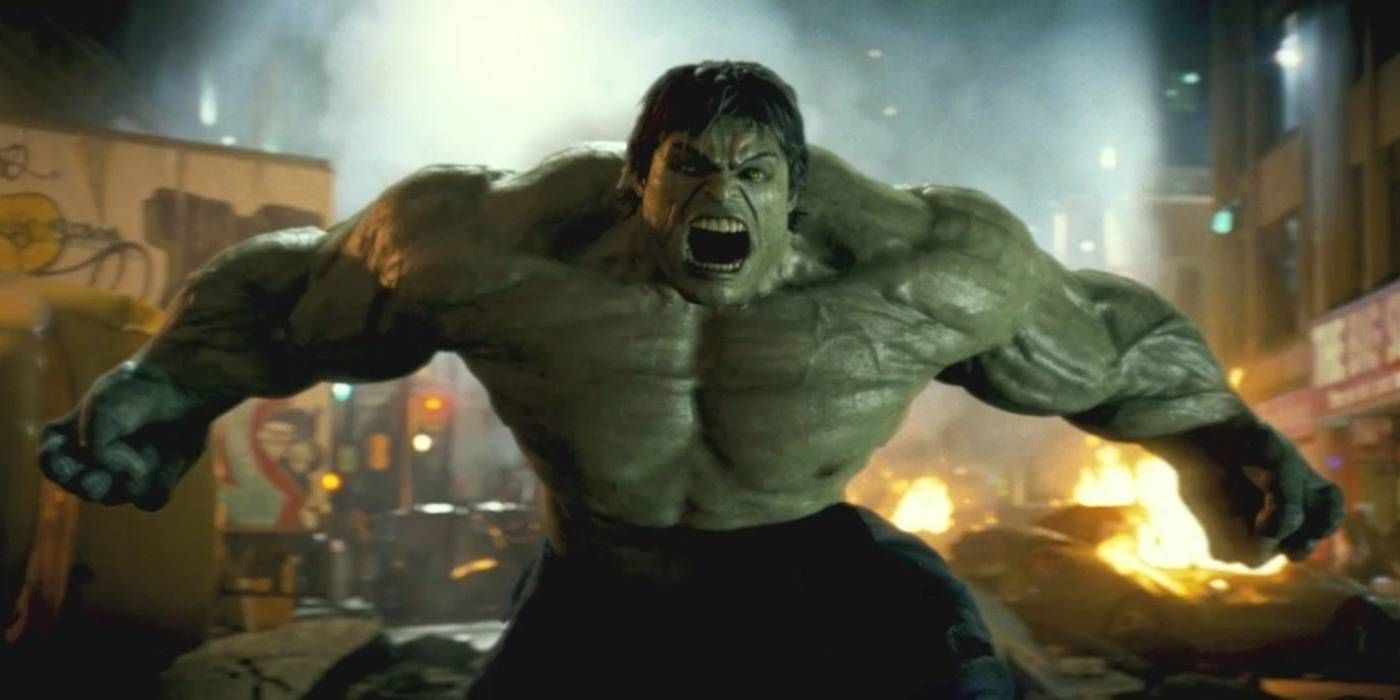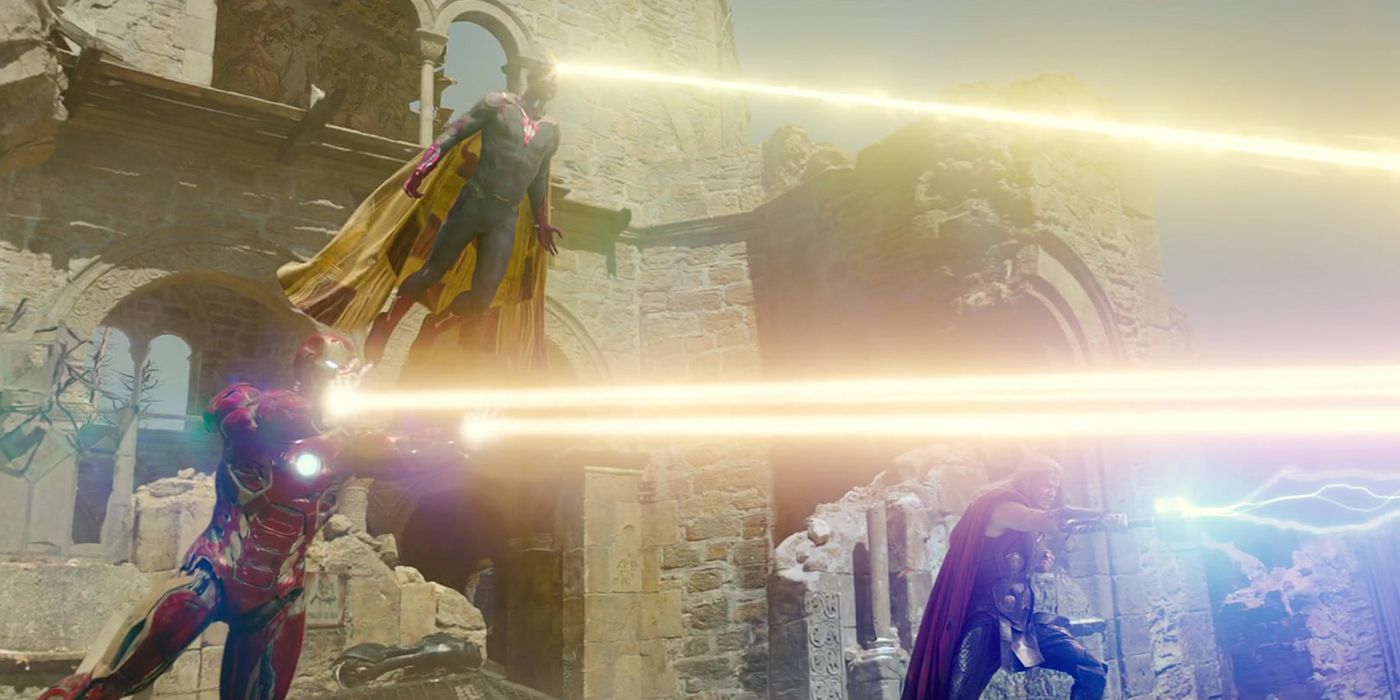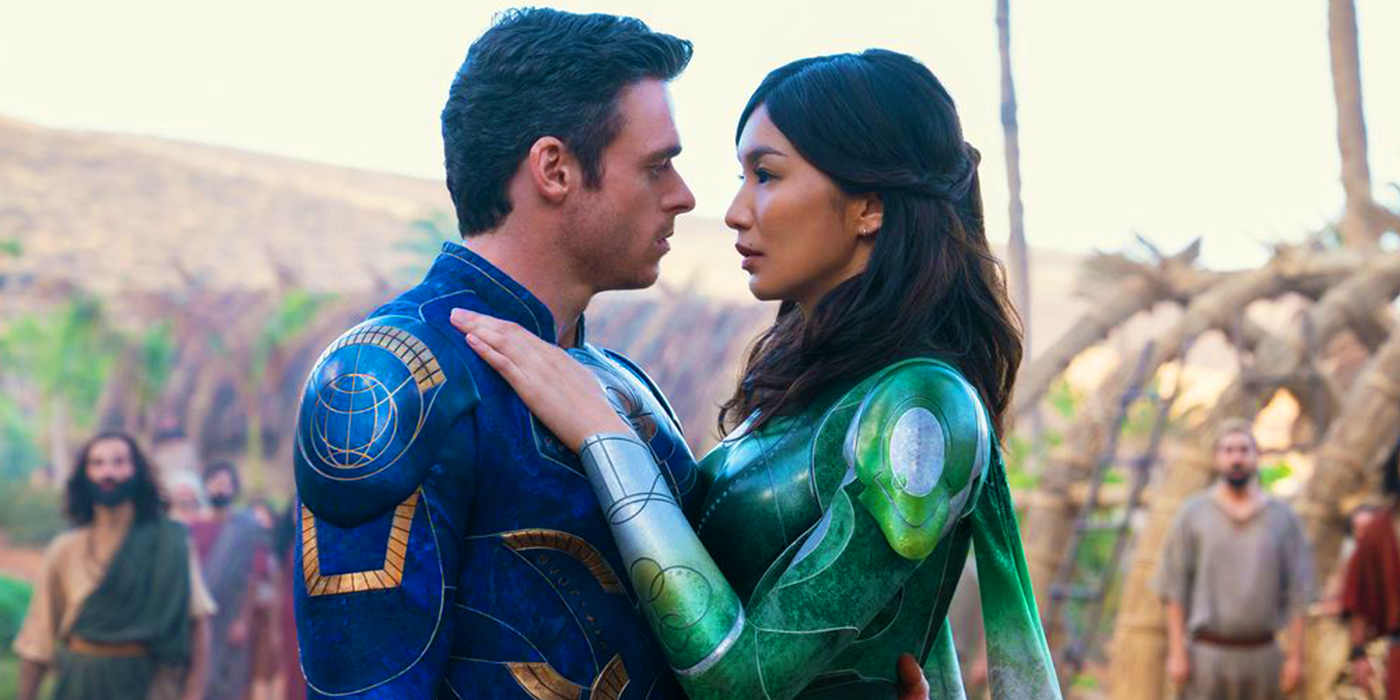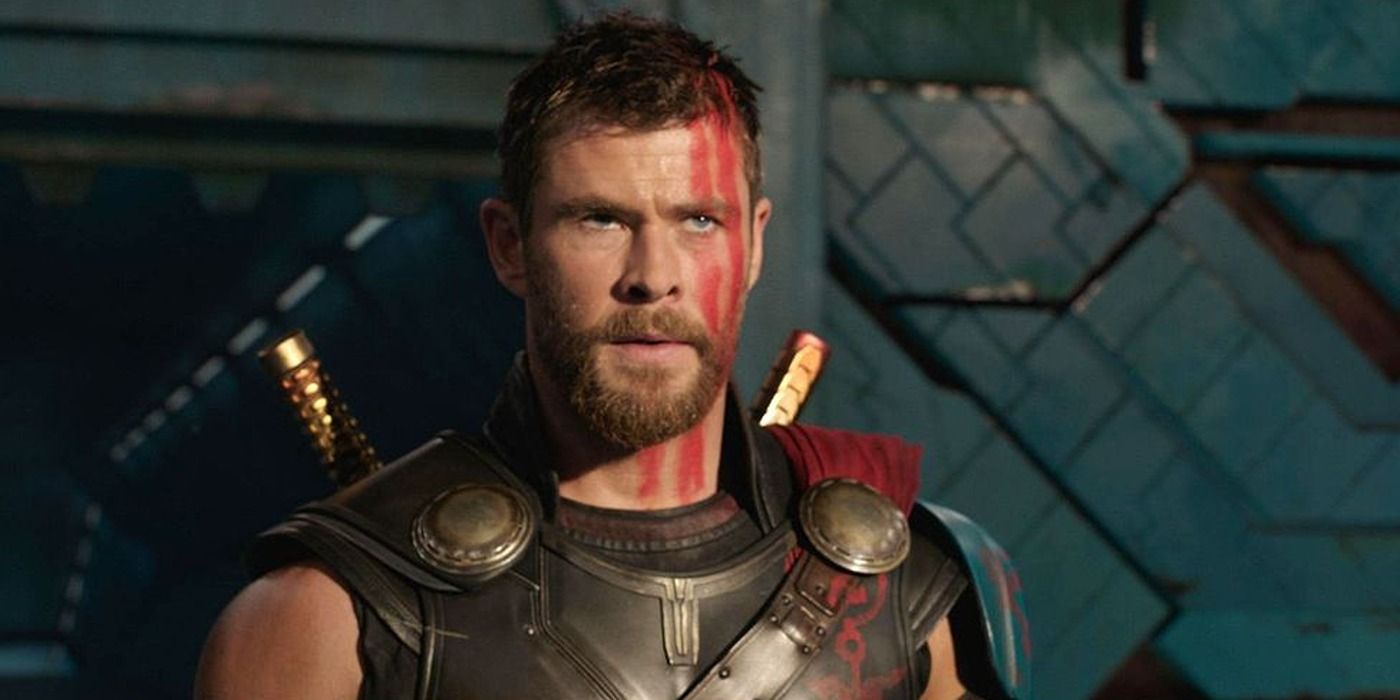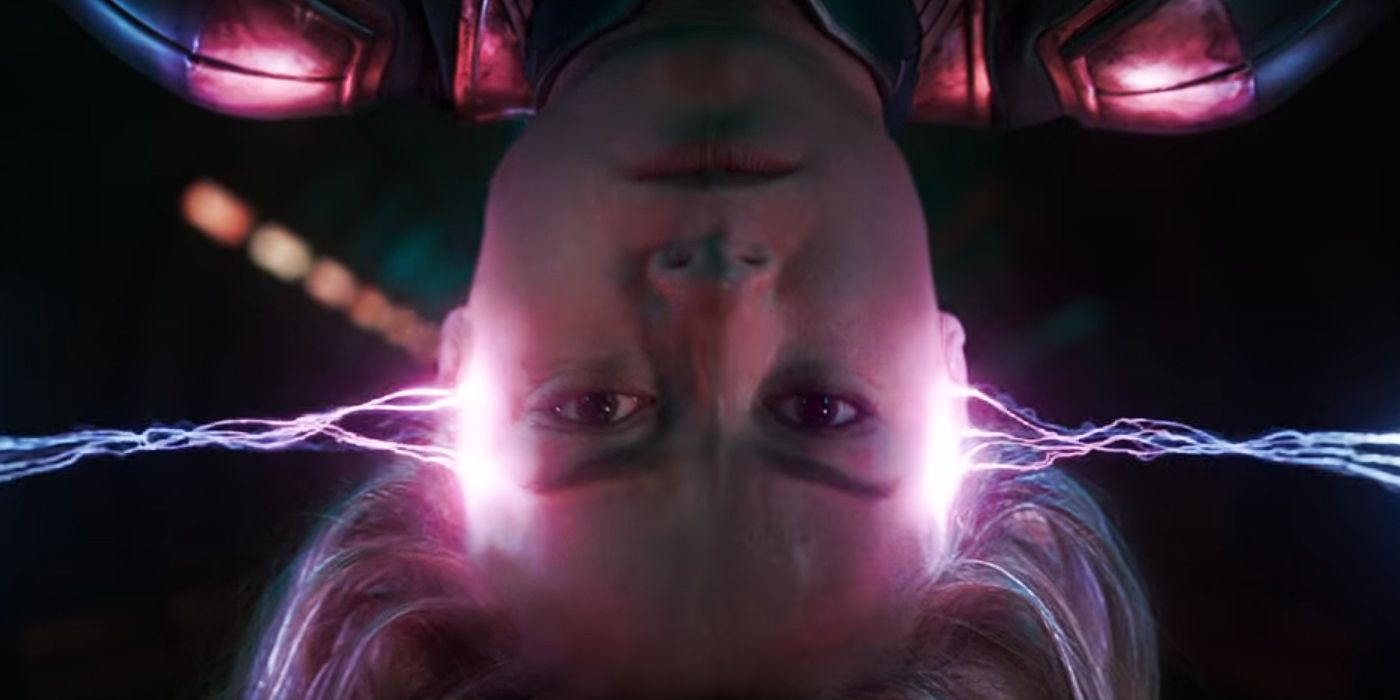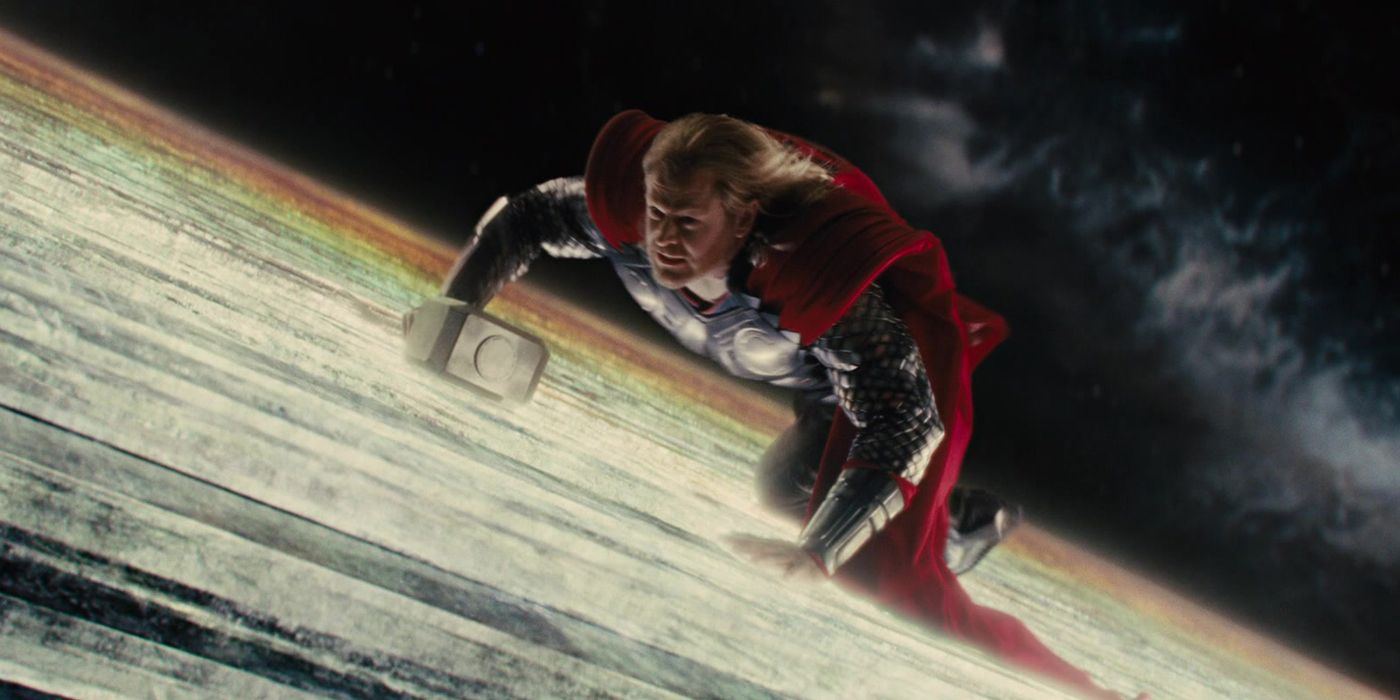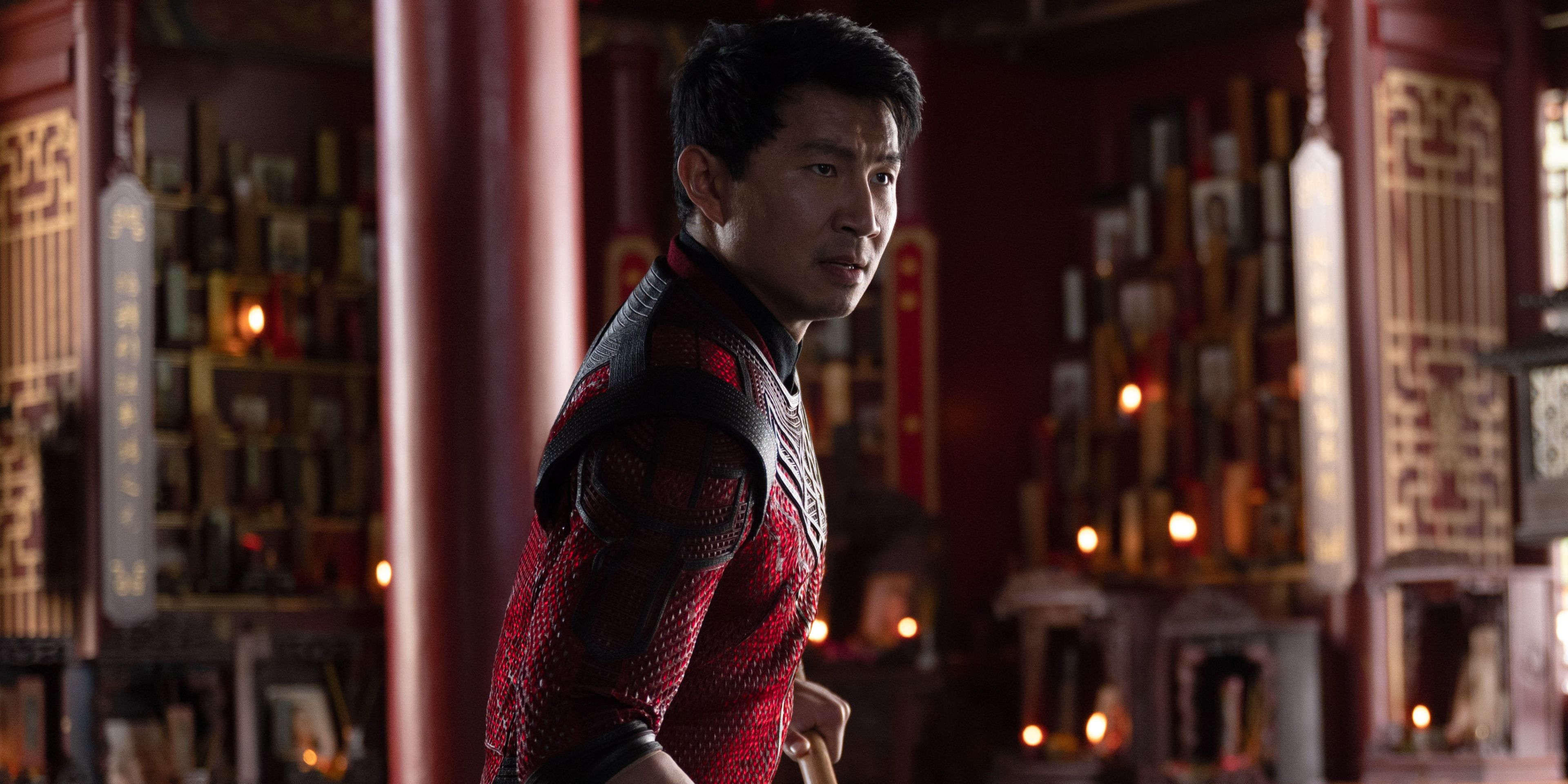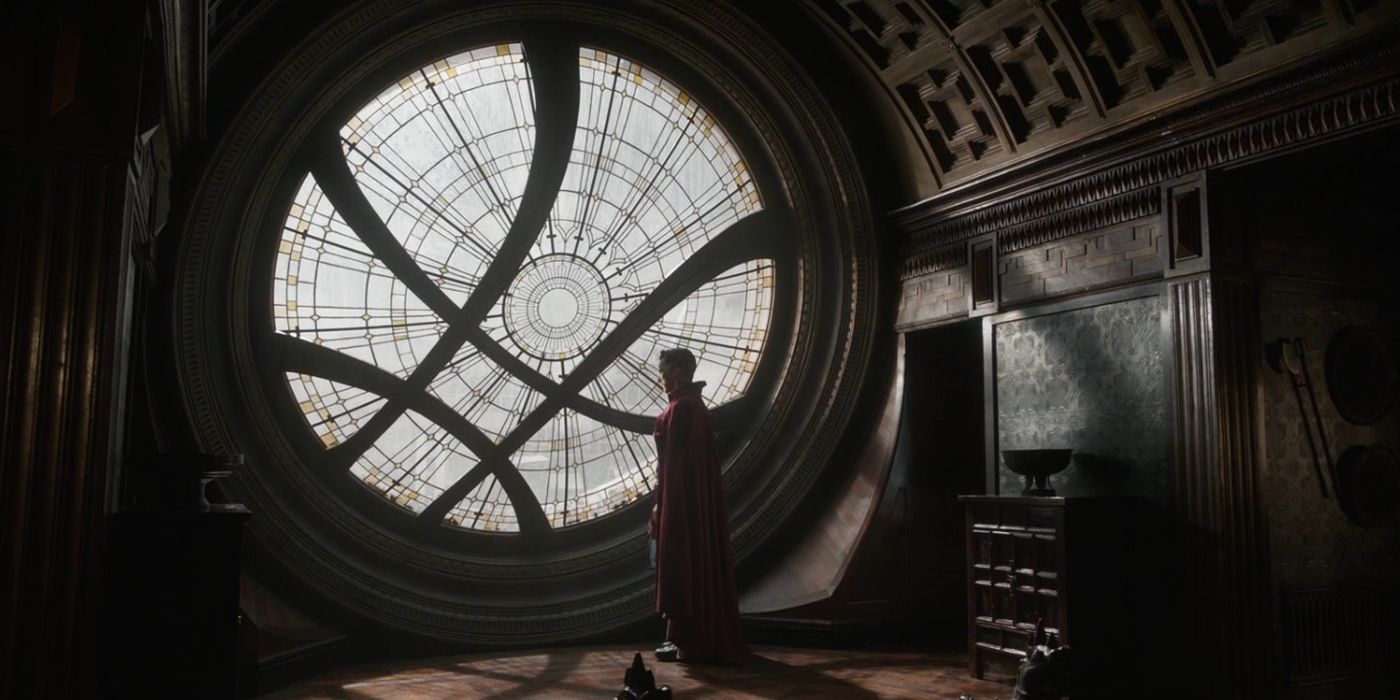Here’s our complete ranking of the MCU movies as Marvel’s Phase 5 continues in earnest. Over the course of 34 movies, Marvel Studios has become the biggest force in Hollywood, earning $29.6 billion at the global box office in little over a decade and revolutionizing how studios approach blockbuster franchises. And while there’s a litany of reasons why, one of the most fundamental is that their films are, for the most part, really good.
It’s not that long ago that good superhero movies were exceptions that proved the rule about comic book movies, and even those shining examples – Superman: The Movie, Batman 1989 – eventually gave way to extinguished returns in sequels. Even after the triple-tap of Blade, X-Men and Spider-Man at the turn of the millennium gave the genre a sense of legitimacy, the scales were still tipped against costumed heroes; the third entries of each of the series those movies formed were duds that ended the trilogies or led to reboots.
Related
The Original Marvel Studios Plan Would Have Led To A Very Different Infinity War
No Iron Man, no Thor, and a lot more Power Pack? Avengers: Infinity War could have been very different had Kevin Feige followed the original MCU plan.
Typically, the Marvel Cinematic Universe is broken down into its chronological narrative Phases: Phase 1 (six movies released 2008-2012) shows the formation of the original Avengers; Phase 2 (six movies released 2013-2015) the impact of superheroes on the world; and Phase 3 (ten movies released 2016-2019) circles the Infinity War against Thanos, along with introducing a new generation of heroes. And, starting in 2021, Phase 4 forged a new multiversal path, dealing with the aftermath of Endgame, before Phase 5 officially switched over to the Multiverse Saga in 2023. This idea of narrative blocks has been at the core of the series since the very start, doubling as a way to hyper-focus audiences on what’s important in the immediate future.
But it’s also legitimate to take a look at them from a more critical perspective. These films do tell a narrative tapestry, but each one needs to work on its own. And, while the overall quality is uniformly high (few are outright bad, and most are at least above-average), MCU movies can be broken into clear strata of quality, ranging from the sure-fire classics to misfires.
Alex Leadbeater and Simon Gallagher have combined experience writing about movies and TV of over 25 years. While the question of quality is subjective, they combine their experience with objective metrics, critical consensus, and – crucially – audience expectation to rank Marvel’s 34 movies. At the heart of every decision are simple questions: what makes a great comic book movie experience, what do viewers expect, and pure entertainment value. It’s not all about how good each movie is compared to
Avengers: Endgame
.
Marvel Movies Ranked: All 34 MCU Movies From Worst to Best
34 Iron Man 2 (2010)
Iron Man 2
The third film in the Marvel Cinematic Universe, Iron Man 2, is an action-superhero film that occurs six months after the original film’s events. After outing himself as the heavy metal superhero known as Iron Man, Tony Stark goes to great lengths to avoid demands from the government for his tech. But, unfortunately, the technology Tony used to save his life is beginning to impact his health inversely – just in time for a man named Ivan Vanko to arrive, who creates his version of the Iron Man tech to settle a decades-long score with Howard Stark’s son.
- Release Date
- May 7, 2010
- Runtime
- 124 minutes
All of Phase 1 displays signs of a studio struggling to find its edge, but nowhere do you feel the strain of the shared universe as much as with Iron Man 2. Primarily, Jon Favreau’s sequel seems to exist to move Tony Stark backwards from where he was left by the two post-credits scenes of Iron Man and The Incredible Hulk – The Avengers plan changed and having Stark at the forefront of the team was no longer the starting status quo – which requires a lot of confused setup for the future, none of it very interesting. But if you strip out the big picture wheel-spinning (which included not only Avengers but nods to Black Panther, Captain America and Namor), then it’s not got much to offer besides.
It’s really a half-dozen different stories all pulling in different directions. Fury and S.H.I.E.L.D., Black Widow, Whiplash, War Machine, Justin Hammer and Pepper and Stark Industries all have their own subplots alongside Tony’s demon in an arc reactor plot, and they’re so disconnected that at one point Fury has to put the hero under house arrest so he can unlock enough power to get to the boss fight. So much of what made the first film work is undone, with confidence in the characters making way for repeated winking – Don Cheadle’s first line is “I’m here, deal with it“, Coulson draws attention to what may or may not be a prototype Captain America shield – and the distinct feel replaced with a visual style that jumps between generic late-2000s blockbuster and Bay-esque militaristic fetishism (and leery camera).
Robert Downey, Jr. and co. anchor the whole thing well, the Iron Man design and implementation is still amazing, and the goals are admirable enough, which is enough to make it passable, but it still pales compared to the rest.
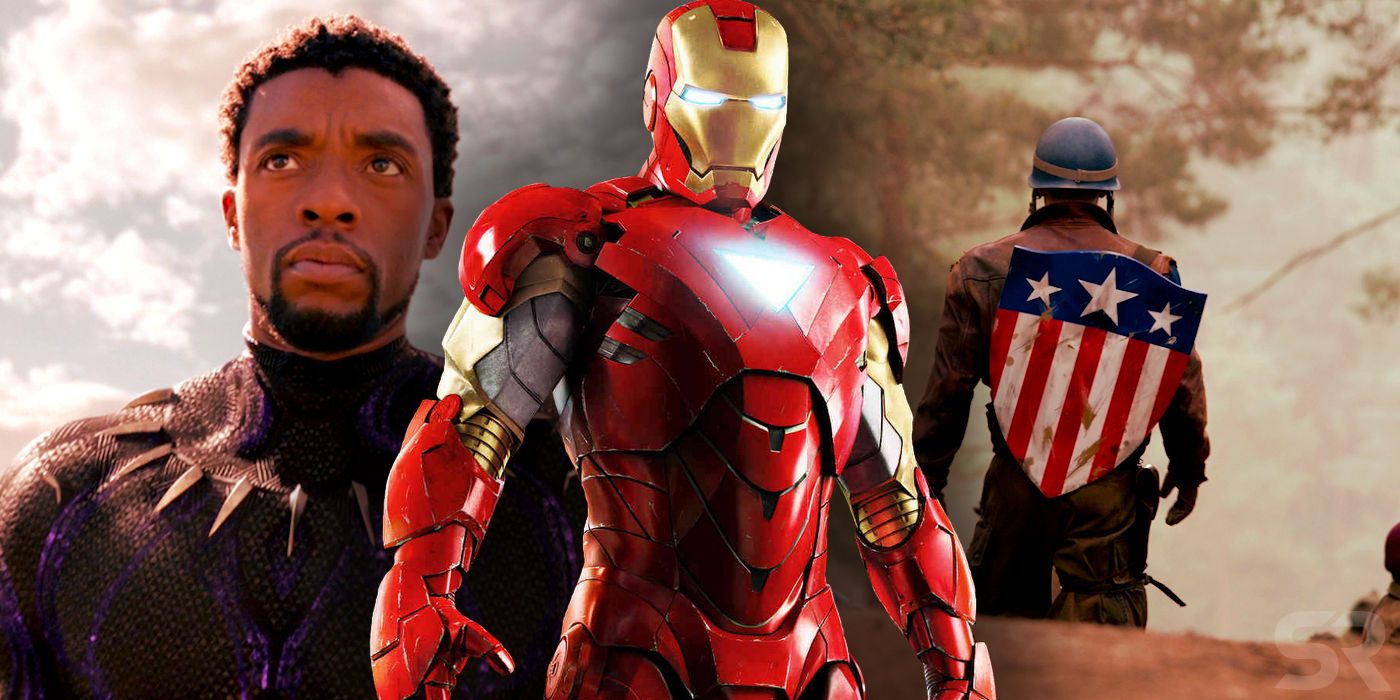
Related
Every MCU Movie Iron Man 2 Set Up
Iron Man 2 is all about setup, preparing the way for some of the MCU’s biggest movies. Here’s our guide to the crucial Iron Man 2 Easter eggs.
33 Thor: The Dark World (2013)
While it’s often cited as an out-and-out bad film, Thor: The Dark World‘s real problem is that it’s bland. The story is – like other low-ranking MCU sequels – multiple different threads all undernourished. The tone never embraces the full-on Kirby cosmic side to the extent the movie thinks yet neither passes as a knockabout comedy either. And there’s so little ingenuity that its finale where all reality hangs in the balance is set in one square at the University of Greenwich
Its relation (read: disregard) of the past is a particular problem. Alan Taylor took the broody, high-contrast style of Kenneth Branagh’s original and replaced it with clean CGI, expanding Asgard in a superficial way that comes across as cheap Star Wars; and if that’s what it was going for, the inconsistent story flow, set blocking and editing are more Attack of the Clones than The Empire Strikes Back. The director was allegedly picked to apply a Game of Thrones style to Marvel’s mythic franchise, but there’s no verve here and just a couple of bar scenes to pay lip service. Even the once good stuff doesn’t really work; Anthony Hopkins’ Odin performance is shocking and while Hiddleston is still fun as Loki, his arc and weird betrayal fake-out on Svartalfheim is amateurishly written. Later efforts from Taylor – equally unimaginative Terminator Genisys and Game of Thrones‘ dire “Beyond the Wall” reveal him as the likely core issue here.
What Thor: The Dark World does mark is the point where Marvel bias began to take hold. Thanks to the success of The Avengers and promise of growing inter-connectivity (this was the first movie to explicitly confirm the Infinity Stones), there was a lot of goodwill directed at Thor 2 upon release that feels incredibly in the moment and oblivious to its many flaws.
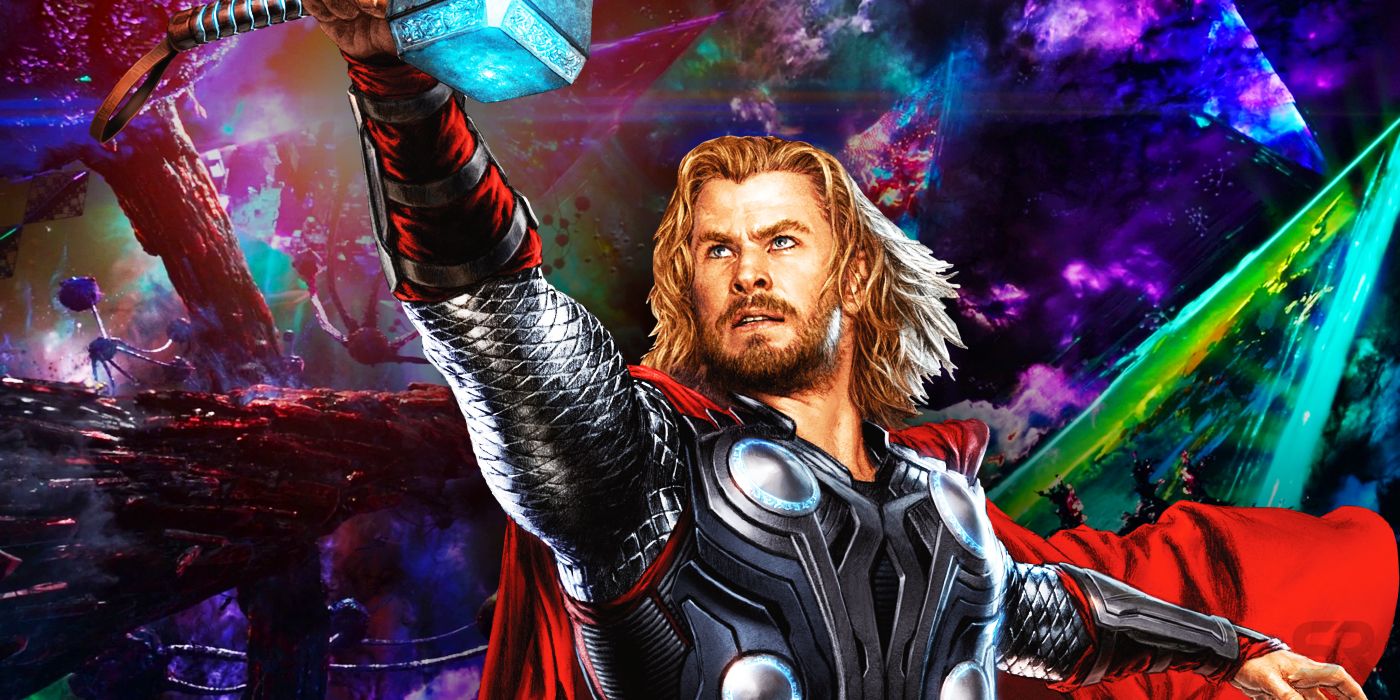
Related
How The Thor Movies Secretly Introduced The Multiverse To The MCU
Most fans think Doctor Strange introduced the Multiverse into the MCU – but in reality, the Thor trilogy did it years earlier.
32 Ant-Man and the Wasp: Quantumania (2023)
Ant-Man & the Wasp: Quantumania
Ant-Man and the Wasp: Quantumania is a sequel to 2018’s Ant-Man and the Wasp and is part of the ever-growing Marvel Cinematic Universe. Jonathan Majors returns as a variant of He Who Remains from the Loki TV Series named Kang the Conqueror. In addition to returning cast members Paul Rudd, Evangeline Lilly, Michael Douglas, and Michelle Pfeiffer, Kathryn Newton makes her MCU debut as Cassandra “Cassie” Lang, Scott’s daughter. When Cassie activates a signal to the Quantum Realm, she, Hope, Janet Van Dyne, Hank Pym, and Scott are pulled into the dimension, embarking on a chaotic journey the likes of which the Marvel Universe has never seen.
- Release Date
- February 17, 2023
- Director
- Peyton Reed
- Runtime
- 135 minutes
After Ant-Man and The Wasp somewhat surprisingly outperformed the original, Marvel decided to go bigger, tying Ant-Man and the Wasp: Quantumania into the then unnamed Multiverse Saga and using it as a de facto backdoor pilot for Avengers: The Kang Dynasty. In theory, the logic was smart enough: Ant-Man 2 had been used to set up Avengers: Infinity War in a way that didn’t compromise the personal stakes of the movie and the MCU was in need of a Thanos replacement. What better way to achieve that than to follow up Loki’s post-credits Kang tease and to go even harder on the Quantum Realm?
While Jonathan Majors’ Kang is a strong presence, and there is a very personal story at Quantumania‘s heart, it’s ultimately quite difficult to care about the stakes. The entire story sets up Kang as a formidable threat to the Avengers and the world, but it’s all undone by the end to establish the Kang Dynasty loophole that never quite works as intended. Even before the Multiverse Saga really started, Marvel fatally introduced the idea that nothing really matters in it: rather than it bringing an infinite promise of creativity, Quantumania‘s lasting legacy is of pointlessness. And no amount of Paul Rudd charm can really grapple with that.
There’s too much reliance on CG, the scale is too large and surprisingly hollow at the same time, all sense of fun evaporating as it becomes clear that Ant-Man has once again been used as a stepping stone for when the big boys will come back to hoover up all the glory. Despite its good parts, it’s destined to not be remembered.
31 The Incredible Hulk (2008)
The Incredible Hulk
The second film in the Marvel Cinematic Universe (MCU) is The Incredible Hulk, which was released in 2008. The film introduced a new backstory for the Hulk to differentiate it from the 2003 movie, Hulk. Actor Edward Norton played the role of the green hulk, and his alter ego Bruce Banner. He is joined by actress Liv Tyler who plays his love interest, Dr. Elizabeth “Betty” Ross. Betty’s father, General Thunderbolt Ross (William Hurt), is hoping to recreate a World War II supersoldier program and, in the process, exposes Bruce to gamma radiation that transforms him into the Hulk. He flees to find a cure for himself but is eventually tracked down by Thunderbolt, who forms an alliance with Emil Blonsky (Tim Roth). After The Incredible Hulk, Mark Ruffalo took over the character for subsequent movies in the MCU.
- Release Date
- June 13, 2008
- Director
- Louis Leterrier
- Runtime
- 112 minutes
It’s not the worst MCU film, but The Incredible Hulk is undoubtedly the black sheep. The only actor who’s returned so far is William Hurt as a changed General Ross in Captain America: Civil War, and the primary event referenced later by Mark Ruffalo’s Bruce Banner is a deleted opening scene (that thanks to a Captain America Easter egg is patently non-canon). Despite that, The Incredible Hulk is a solid piece of world-building. It’s full of S.H.I.E.L.D. and Stark Industries Easter eggs that build on Iron Man, roots Hulk’s origin in Captain America’s super soldier serum three years ahead of Steve Rogers’ debut, and directly builds to the Avengers with its ending and immediate credits scene (even if the idea of Iron Man recruiting a team against Hulk was canned).
All of that is great flavor to an otherwise generic 2008 blockbuster. Louis Leterrier’s direction is off the shelf, with high contrast, sweaty night-time scenes style du jour, and its story is any werewolf narrative turned action movie. Edward Norton may have had grander plans in mind, but The Incredible Hulk is lacking anything unique.
The MCU connections actually highlight a lack of identity. For all the aforementioned setup, the movie is also trying to honor the 1970s TV series; Lou Ferrigno gets an ingratiating cameo, the theme tune plays throughout, and the ending appears to be almost indicating this is intended as a quasi-remake. Worse, it betrays one of the biggest rules of Marvel Studios: it doesn’t explain what the Hulk is and how he could work in a wider context.
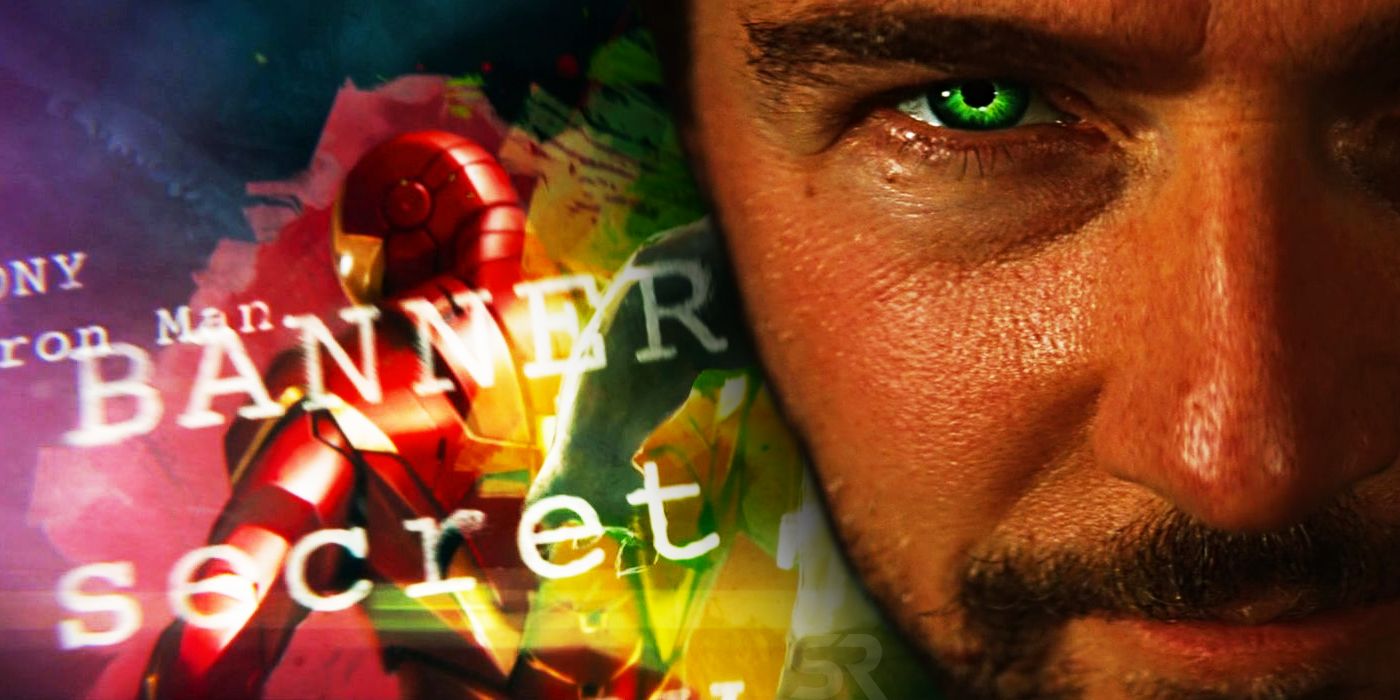
Related
The MCU Didn’t Have A Good Plan At First – And Incredible Hulk Proves It
The Incredible Hulk is treated like the black sheep of the MCU, but it’s really an example of how little of a plan Marvel Studios originally had.
30 Ant-Man And The Wasp (2018)
Ant-Man and the Wasp
From the Marvel Cinematic Universe comes a new chapter featuring heroes with the astonishing ability to shrink: “Ant-Man and The Wasp.” In the aftermath of “Captain America: Civil War,” Scott Lang grapples with the consequences of his choices as a Super Hero and a father. As he attempts to rebalance his home life with his responsibilities as Ant-Man, he’s confronted by Hope van Dyne and Dr. Hank Pym with an urgent new mission. Scott must again wear the suit and fight alongside The Wasp as the team works together to help the father-daughter duo uncover secrets from their past.
- Release Date
- July 6, 2018
- Director
- Peyton Reed
- Cast
- Laurence Fishburne , Michelle Pfeiffer , Evangeline Lilly , David Dastmalchian , Judy Greer , Randall Park , Michael Douglas , Paul Rudd , Hannah John-Kamen , Michael Pena , Bobby Cannavale
- Runtime
- 118 Minutes
Ant-Man and the Wasp is the Marvel movie everybody who dislikes the MCU sight-unseen thinks Marvel movies are. It’s an unimaginative stringing together of multiple random plot strands that never fully pay off (the third act involves six different sets of characters and yet they barely connect up), instead repeatedly falling back on the charisma of its leads for quick laughs. The result is the most out-and-out boring entry in the series, one that does very little with its characters and is instantly forgettable.
With the production issues that restricted Ant-Man in the past and a cast family well-established, this could have been a real step up. It wants to be the Honey, I Shrunk The Kids family comedy of the MCU, yet Peyton Reed all-too-often falls back on formula meaning ideas are repeatedly left hanging: most applications of the Pym Particle size-changing are variants of “small thing becomes big” or “big things become small”, and when things are a bit different, there’s no story purpose (Scott Lang shrinks to the size of a child in a high school and nothing comes of it). It plays like a superhero movie of the 1990s, and not in an intentional way; at one point, the villain calls in motorbikes like he’s Mr. Freeze trotting out another piece of plastic merchandise.
Viewed in the context of Avengers: Infinity War, the film weakens further. Far from the palette cleanser promised, Ant-Man and the Wasp is lacking any substance at all, with the only moment that really captivates being the post-credits scenes that show the effects of Thanos’ snap. When the most exciting moment of a film is a reminder that a previous, better film happened earlier that summer, you know something’s gone wrong.
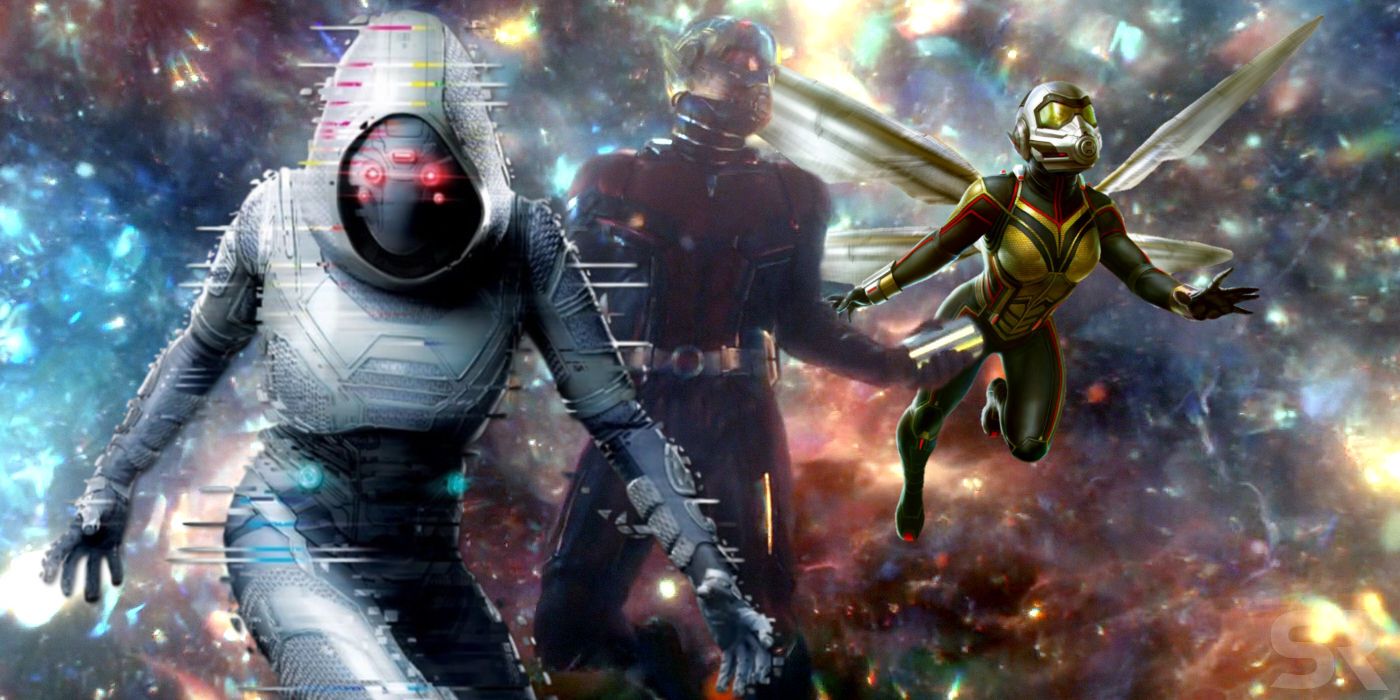
Related
Ant-Man & The Wasp Was The MCU’s Biggest Missed Opportunity
Ant-Man & The Wasp had so much potential – but, in a rare misstep by Marvel Studios, the film completely failed to live up to it.
29 Avengers: Age of Ultron (2015)
Avengers: Age of Ultron remains the biggest disappointment in the MCU. It was admittedly the most hyped entry up until that point also, carrying the weight of the 2012 original and the many excellent standalones since, but that doesn’t make the fall any less painful. Whereas with most Marvel films you can at least understand what the intent was, here many ideas feel misguided; this was positioned as Whedon’s Empire Strikes Back (bigger, deeper, darker) yet doesn’t have the plot urgency or consequence to make the new themes, characters or threats have any proper impact, while the bolder moves it does make – the twins, Nat and Bruce’s relationship – are interchangeably underserved and insulting.
It’s easy to nitpick the narrative (Scarlet Witch’s dream-visions are so ambiguous in intent it hurts) but that’s only because the filmmaking is overall considerably weaker. While it’s common to claim this is better directed than The Avengers, that’s only on a superficial level; the original looks a little too like a TV show at points, sure, but its sequel doesn’t offer much more beyond a more experienced CGI team with its considerably weaker script. What really stands out is the editing – scenes have no placement and most are cut down to the point big moments don’t land because they have no setup or breathing room. All this together leaves a disjointed experience, one all the positive elements – Vision (especially his origin), the core three, Andy Serkis, the Hulkbuster fight – are struggling to combat.
One the one hand, Avengers: Age of Ultron is very much the result of the infamous Marvel Creative Committee, who by most accounts were meddling with the film’s direction to a damaging degree. On the other, many of its missteps have come to define the MCU going forward: comedy undercutting sincerity (see: Ultron’s “children” line); slow scenes filling in for genuine character development (see: Hawkeye’s farmhouse); and a disregard for the continuity (see: the mid-credits scene with a totally new Infinity Gauntlet).
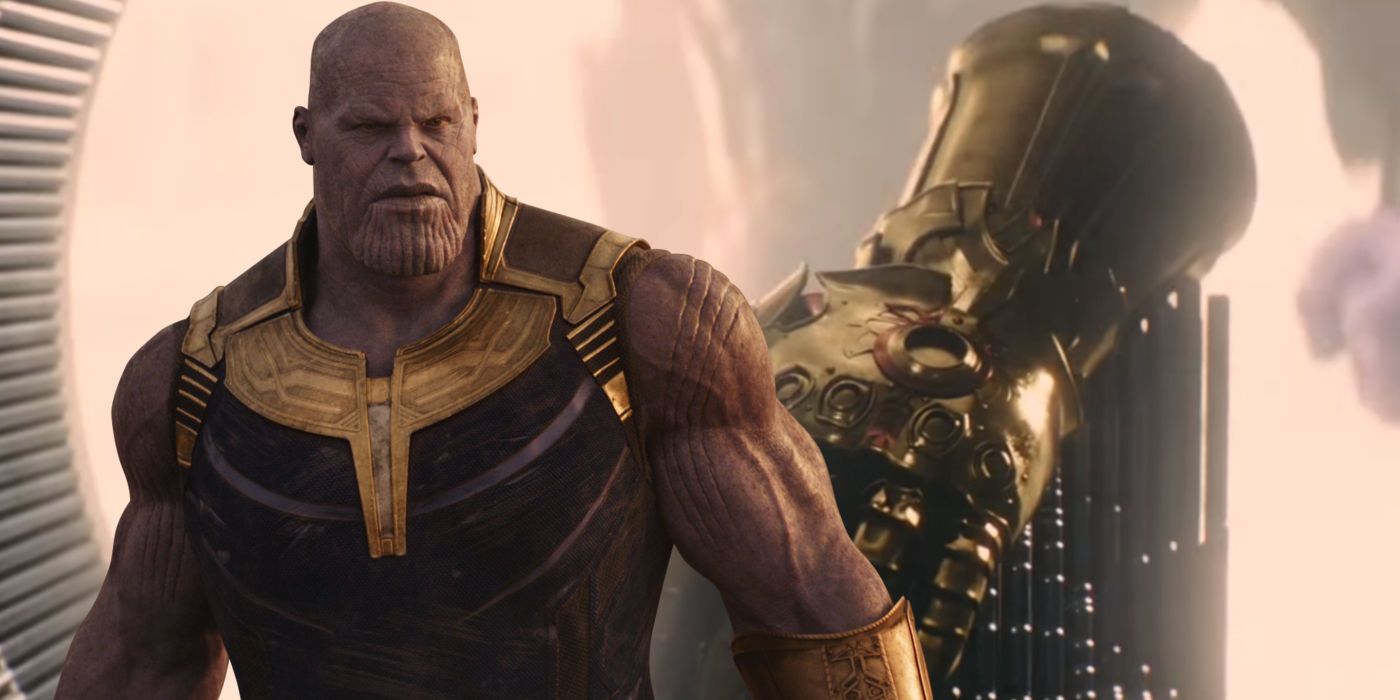
Related
The Thanos Moment Where Marvel Gave Up On Its Continuity
Marvel’s continuity has come under the spotlight over the last week – but just when did the MCU first start to have continuity problems?
28 Black Widow (2021)
Black Widow
Black Widow is a film about Natasha Romanoff in her quests between the films Civil War and Infinity War. This is the 24th installment in the Marvel Cinematic Universe and the first solo film for Black Widow, one of the original six Avengers. The character previously appeared in seven MCU films, including all four Avengers movies. Black Widow was originally scheduled for May 2020 but was delayed due to the coronavirus pandemic.
- Release Date
- July 9, 2021
- Director
- Cate Shortland
- Runtime
- 134 minutes
The decade-long wait for Scarlett Johannson to get her own solo movie, extended even further by the COVID-19 pandemic, wasn’t worth it after all. Set directly following the mainline events of Captain America: Civil War, Black Widow could have effectively released in the early stages of MCU Phase 3 – nestled between Doctor Strange and Guardians of the Galaxy Vol. 2, perhaps – and been entirely unaltered as a movie or experience. But the problems with the Phase 4 starter as a movie aren’t related to it coming after the outer-space death of its protagonist in Avengers: Endgame, but are more rooted in its uncharacteristically poor filmmaking.
The story at Black Widow‘s heart, resolving Nat’s past with the Red Room (as well as nods towards the Winter Soldier and her stint with Hawkeye in Budapest) by introducing her former “family” is expansive on paper, and for the first hour or so director Cate Shortland tees up a solid espionage thriller – the 1995-set opening and Nirvana-cover-scored opening credits are The Americans meets Bond. But a mixture of gross miscasting (Ray Winstone as uber-villain Dreykov), contrived narrative mechanics (a plan is detailed in repeated flashbacks after its impact has passed relevancy) and general choppy editing undo the third act and leave a movie without a strong throughline or much action excitement. Even the aforementioned cultural touchstones become trite, with Moonraker getting an explicit callout and nods to Terminator 2 and Point Break so unsubtle they defy classification as homage.
It’s especially disappointing for Johannson given the film plays it as Nat’s final outing; while Black Widow is the lead, her character exists in timeline-mandated stasis allowing little real development. There are few dangling threads for her remaining, but neither are new layers uncovered. Even the future prospect of the memorable supporting additions – Florence Pugh’s Yelena and David Harbour’s Alexei – is weakened by neither feeling as prominent as they should.
27 Eternals (2021)
Eternals
Eternals is the 25th installment in the Marvel Cinematic Universe and is part of its fourth phase. Over 500 years ago, when the ten Eternals complete the task given to them by the Celestial Arishem to wipe out the invasive alien species known as Deviants that roam the earth, the group decides to go their separate ways as they find themselves at odds with how to continue their interactions with humanity as they grow and learn. Blending into society, the Eternals continue to live their lives in the modern day until the Deviants emerge again. When one of the Eternals is supposedly slain by a deviant, events are set in motion that will reunite them once again to discover why the Deviants have returned and what the true intentions of the Celestial have been for all these millennia.
- Release Date
- November 5, 2021
- Director
- Chloé Zhao
- Runtime
- 157 minutes
Fittingly, given how the comic inspirations for Eternals were created after Jack Kirby returned to Marvel Comics after his New Gods arc was cut short, there’s a distinct sense of DC to MCU Phase 4’s most experimental film. This team is the real-life inspirations of mythic figures like Athena, Icarus and Gilgamesh who exist above and apart from the humans that (most) love and protect. Icons far from the world outside your window, comparisons to Zack Snyder’s work in the DCEU are not flippant or ill-informed. With Chloe Zhao at the helm, the result is bold, often exciting, but coming as the 26th entry in the Marvel Cinematic Universe also confused.
Whereas Marvel’s weakest entries are undone by playing it too safe, Eternals finds itself overburdened by the restrictions the universe’s well-worn formula imposes. Where this clash is most felt is in the story-character balance. The narrative of Eternals is so large, upending the creation of Earth and birth of humanity as all know it, with genuinely unexpected twists and uncomfortable assessments of societies ills (the real reason why the Eternals didn’t get involved in Endgame is bleak)… yet it doesn’t have the strong characters to underpin it. Several of the titular team break through (Barry Keoghan’s Druig and Brian Tyree Henry’s Phastos most remarkably, and Richard Madden does strong things with seesaw material) but the rest are either underwritten (Lauren Ridloff’s Makari, Don Lee’s Gilgamesh) or lack clear personality direction (Angelina Jolie’s ethereal Athena or Gemma Chan’s passive protagonist Sersi).
It’s the inverse issue of the more comedic movies, where strong characters bolster flimsy narratives, and means that while Eternals takes many larger swings, it also has more embarrassing misses. It’s a mixed bag, neither as bad or as good as some will say and represented throughout the filmmaking, from its rugged on-set locations making way for rubbery CGI, or the pervasive sequel tease of Kit Harington’s Dane Whitman.
26 Doctor Strange In The Multiverse Of Madness (2022)
A Sam Raimi multiverse Marvel movie implicitly promises a lot of things; horror-comedy tinges; weird and wacky universes; big, alt-take cameos. Doctor Strange In The Multiverse Of Madness delivers on all of these aspects, but in a lackluster manner. The Evil Dead stylings, outside of some nifty camera movements and a top-tier Bruce Campbell cameo, come across as window dressing. Stephen Strange’s sophomore adventure takes him to only two other universes for more than a second of screentime. And the much-lauded Illuminati cameos feel the strain of contract and COVID measures, most lacking depth within the narrative of the film or the wider MCU and existing mainly to deliver a gag done better by both Deadpool 2 and The Suicide Squad.
The most egregious aspect in Doctor Strange 2, though, is the MCU’s handling of Scarlet Witch, taking her slow-burn grieving process in WandaVision and distilling it to shorthand for a villain arc. Elizabeth Olsen gives an admirable performance as an angered Wanda Maximoff, but she’s always working against a script that doesn’t understand her character or motivations (indeed, it’s telling that Raimi hadn’t finished the show in question when filming the movie). An upsetting treatment of one of the MCU’s best characters, it also provides a wider window into the creative flaws present in MCU Phase 4. Projects are conceived as intricate jigsaw puzzles but then made in isolation, with only passing glances at aspects that would have been backbones in earlier phases.
All of this comes together for a movie that lacks any sense of consequence. Nothing matters because the solution is always a plot contrivance away, and will be unspokenly altered in the next movie anyway. Doctor Strange’s arc is barely worth a mention, given how little challenge, risk, or change he goes through. What a stark contrast to his original movie – and the Marvel Cinematic Universe as it once was.
25 Thor: Ragnarok (2017)
Thor: Ragnarok
Thor: Ragnarok is the third Thor solo film in the Marvel Cinematic Universe and the first directed by Taika Waititi. In the sequel, Thor (Chris Hemsworth) finds himself stranded on Sakaar, ruled by the Grandmaster (Jeff Goldblum). Soon he teams with Bruce Banner/Hulk (Mark Ruffalo), Valkyrie (Tessa Thompson), and Loki (Tom Hiddleston) to return to Asgard and defeat his sister Hela.
- Release Date
- November 3, 2017
- Runtime
- 2h 10m
Thor: Ragnarok is the epitome of Marvel fun. It’s an entertaining but flippant movie, one that prioritizes in-the-moment laughs over anything of greater weight; its subtext – how colonizers hide their dark pasts – is given brief mention before being relegated to background references. That is fine enough as mid-tier entertainment, but it can’t help but feel a little lacking considering where the MCU had reached at this point.
Comedy is Thor: Ragnarok‘s best and worst quality. Being from Taika Waititi, the jokes have slightly more edge than standard Marvel and set the tone differently, but it’s a shame so much improv led to rather static scene blocking and unrefined editing. What’s really lacking is the trademark Waititi balance of emotion and comedy: both What We Do In The Shadows and Hunt For The Wilderpeople used their wit to accentuate tragedy, but none of that’s here. In fact, Thor: Ragnarok actively bypasses letting sadness sink in: Odin’s death was reshot to be blandly spiritual after it made test audiences feel too sorry for him, and the loss of Asgard is undercut by both a lack of connection with its people and a Korg joke immediately after.
With all that said, there’s plenty that works. Both Thor and Hulk are well-defined enough at this point to thrive in this new environment and, while most new characters are a little exasperating (see: Jeff Goldblum’s Grandmaster), Valkyrie is a fully-rounded delight. The less-improv heavy moments bring that Kirby style to the fore without much resistance. It’s just hard to not want something a little more balanced given how impactful it feigns to be.
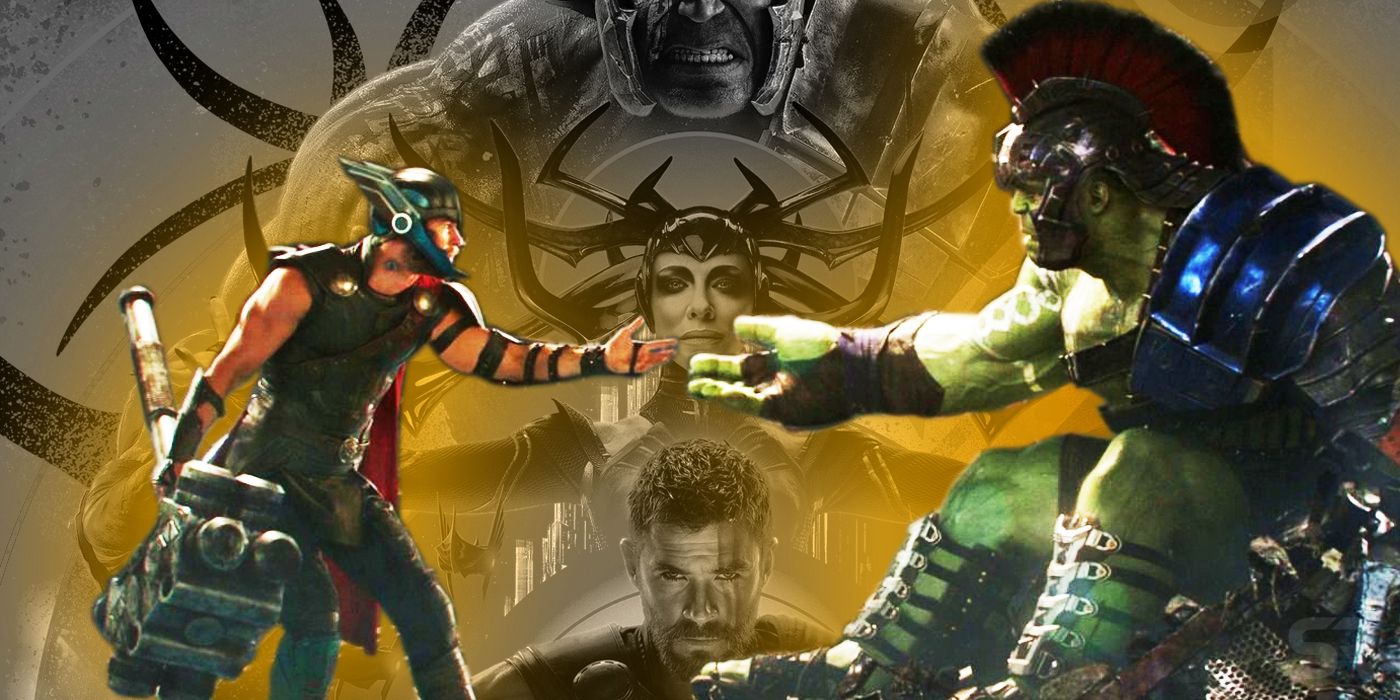
Related
Why Thor: Ragnarok Was A Divisive MCU Film
A recent interview with Thor: Ragnarok director Taika Waititi shines a light on just why this film is becoming so divisive among Marvel fans.
24 Guardians of the Galaxy Vol. 2 (2017)
Guardians of the Galaxy Vol. 2 has a lot going for it. It looks absolutely incredible and there’s a cast of likable, offbeat heroes to provide a string of great moments. It’s just a shame the movie doesn’t have a proper story. The movie begins with the team on the run from Sovereign, then they’re saved by Ego, then Ego reveals he’s bad and they have to stop him. That’s pretty much it, and it leaves a film with plenty of style but no momentum; once Ego arrives, everything grinds to a halt for 30 minutes where there’s no direct threat (something that makes Hawkeye’s farmhouse look positively riveting). It highlights the problem Marvel has with first sequels, wanting pure character development but not knowing how to realize that beyond a string of scenes where characters explain how they feel.
If you break it down, on paper Guardians 2 is about fathers absent and adoptive, and the nature versus nurture debate. Unfortunately, while plenty of sides to this are raised – every single character has a part to play in the theme, one way or another – it never comes together to be anything more than individual. There’s a sense Baby Groot was supposed to be the uniting aspect given his hugs at the end, but his role for most of the film is that of comic relief.
As already mentioned, the characters keep James Gunn’s head above water. Star-Lord gets a payoff to his backstory that honors a lot of seeds in the first movie, although Rocket comes across the best by far, his personality painfully laid bare without having to lean too heavily on the whole scientifically-altered raccoon thing, and gets the fair share of great moments; were it better set up “I’ve lost too many friends today” would be an all-timer.
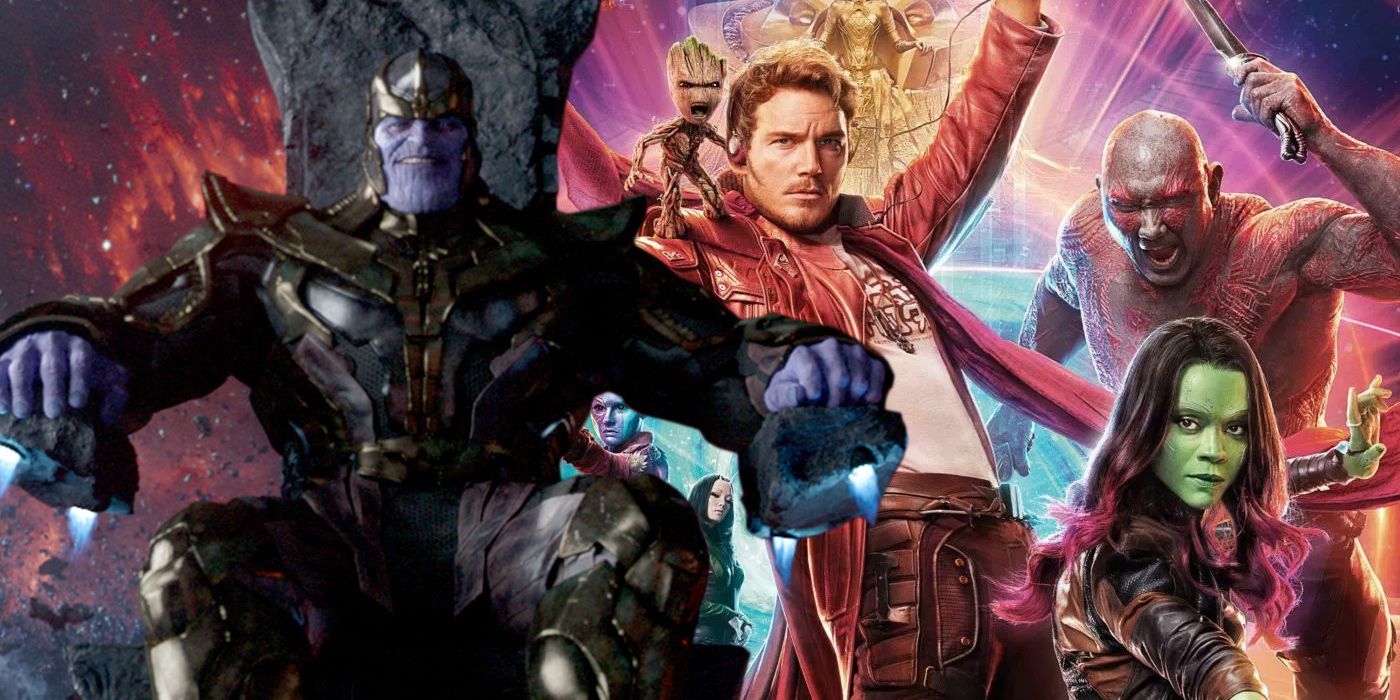
Related
Should Guardians of the Galaxy 2 Have Had More MCU Connections?
Guardians of the Galaxy Vol. 2 is light on plot, so should it have been more focused on the wider MCU?
23 Captain Marvel (2019)
Captain Marvel
Set in 1995, Captain Marvel follows Carol Danvers, a former U.S. Air Force fighter pilot, as she turns into one of the galaxy’s mightiest heroes and joins Starforce, an elite Kree military team, before returning home with new questions about her past and identity when the Earth is caught in the center of an intergalactic conflict between two alien worlds.
- Release Date
- March 8, 2019
- Director
- Ryan Fleck , Anna Boden
- Cast
- Lee Pace , Brie Larson , Rune Temte , Clark Gregg , Ben Mendelsohn , Algenis Perez Soto , Samuel L. Jackson , Jude Law , Djimon Hounsou , Gemma Chan , Lashana Lynch , Mckenna Grace
- Runtime
- 124 minutes
Unlike most MCU movies where there’s a degree of consistency to the quality throughout, Captain Marvel is the one that varies the most. Some moments and long stretches of story are very strong – anything involving the Skrulls and their true purpose is fascinating – yet many decisions have more mixed reactions.
It’s all rooted in a welcome, non-linear change-up to the formula; Brie Larson enters as Kree Starforce member Vers and only gradually uncovers her past as Carol Danvers, eventually choosing the hero persona entirely of her own accord. It’s strong messaging, having the first solo female MCU hero emerge from a place of external restrictions to define herself, but also leads to unclear audience perspective – even at the end, viewer and star aren’t on the same page – and turbulent narrative. Not to mention some classic concerns aren’t adjusted; villain Yon-Rogg who earlier warned humor was a distraction is beaten in a gag beat.
Operating as the MCU’s first lore-heavy prequel, Captain Marvel does a good job of expanding the world. 1990s period details are mostly background (bar specific music choices), and the Marvel references are mostly organic and expand known ideas without contradicting (just don’t ask Nick Fury how he lost his eye or where the name Avengers came from). And, of course, with clear connections to Avengers: Endgame (which Larson shot first), it exemplifies origin stories as dry runs for bigger adventures; Brie Larson is more Hemsworth than Evans (strong, promising, not fully there yet) but it doesn’t matter because this functions as just one piece of a whole.
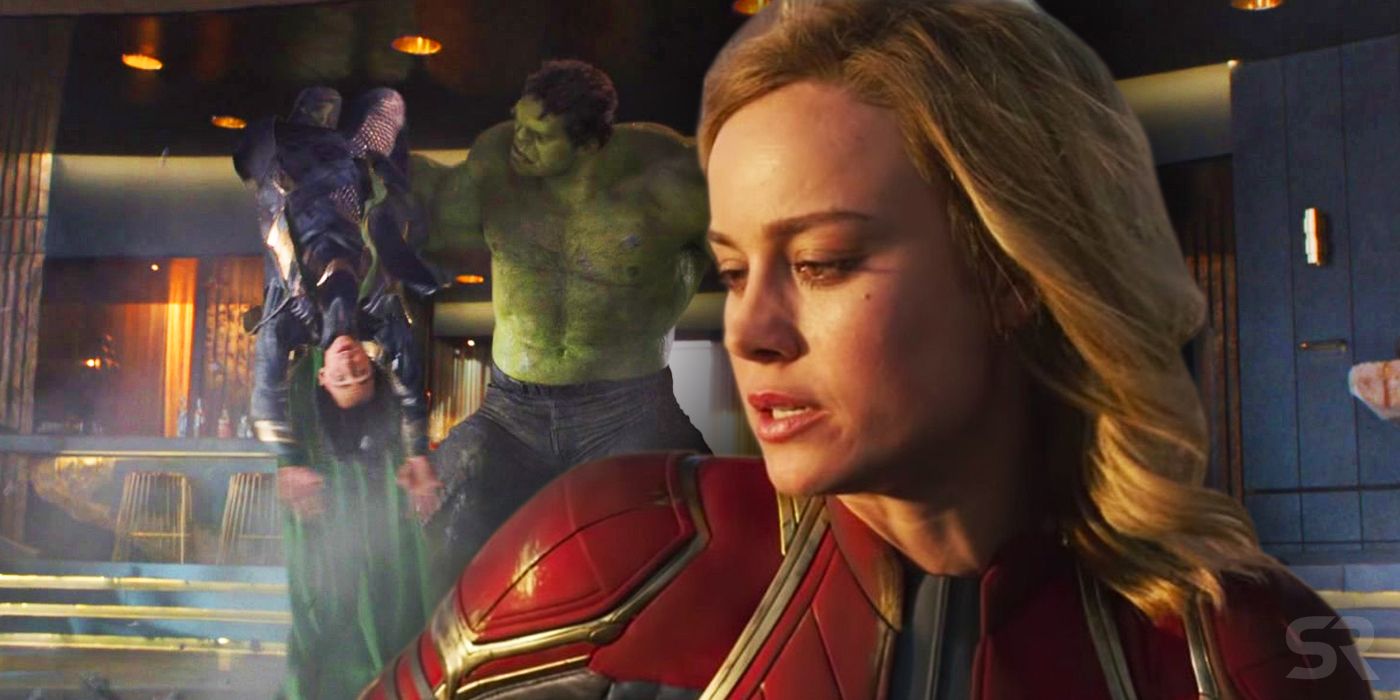
Related
Captain Marvel Points Out The MCU’s Biggest Problem (But Can’t Quite Fix It)
Captain Marvel correctly states that “humor is a distraction”. Unfortunately, the MCU doesn’t learn its lesson in the prequel movie.
22 Ant-Man (2015)
Ant-Man
Former S.H.I.E.L.D. scientist Hank Pym (Michael Douglas) is alarmed when his protégé Darren Cross (Corey Stoll) announces his near success in replicating his shrinking technology. Representatives from HYDRA are looking to buy the suit that could cause massive destruction, and Hank must find a man who can successfully infiltrate a tightly guarded facility. After rigorous training with Pym and his daughter Hope van Dyne (Evangeline Lilly), including the manipulation of a technologically advanced suit, control of ants, and physical fighting skills, ex-convict Scott Lang (Paul Rudd) is chosen to become the new Ant-Man. Together with Hank, Hope, and his friends Luis (Michael Peña) and Dave (Tip Harris), Scott must fight with Darren, who has perfected his version of the suit called the Yellowjacket. Ant-Man is the twelfth film in the Marvel Cinematic Universe and acts as the final addition to Phase 2.
- Release Date
- July 14, 2015
- Director
- Peyton Reed
- Runtime
- 117 minutes
Ant-Man was the first in a new type of Marvel origin film. Here was a character becoming a superhero in a world where the Avengers already exist, where namedrops and cameos were de rigor, and the formula was down to a tee. But this was also a movie where the production limitations (Edgar Wright was infamously fired three months before production began, replaced by Peyton Reed) and the high hit-rate of said formula made for safe choices. The result is actually the median Marvel film, overall competent but with little ambition, and where the character would only truly shine when part of the wider ensemble.
What Ant-Man gets unavoidably right is the casting. It’s a shame we never got an in-his-prime Hank Pym, but Paul Rudd as Scott Lang is an effective twist on the typical Marvel hero (this one is a real criminal, no questions) and Michaels Douglas and Pena add edge as aware mentor and hyperactive buddy respectively. There’s also a large, affable supporting cast (Bobby Cannavale as an upending of the step-father is an underrated highlight) that take audiences through the rather standard story and making a more overtly comedic movie pop.
It’s on the superhero side where Ant-Man struggles. The action, in particular, is a major let-down, with a constant uncertainty in how to shoot the micro-sequences. Are they told from Scott’s shrunken down perspective or a full-size human? With minimal pre-production, Peyton Reed doesn’t have an answer so goes for an uneasy blend of the two, which is disorienting and sometimes interesting, yet never that innovative.
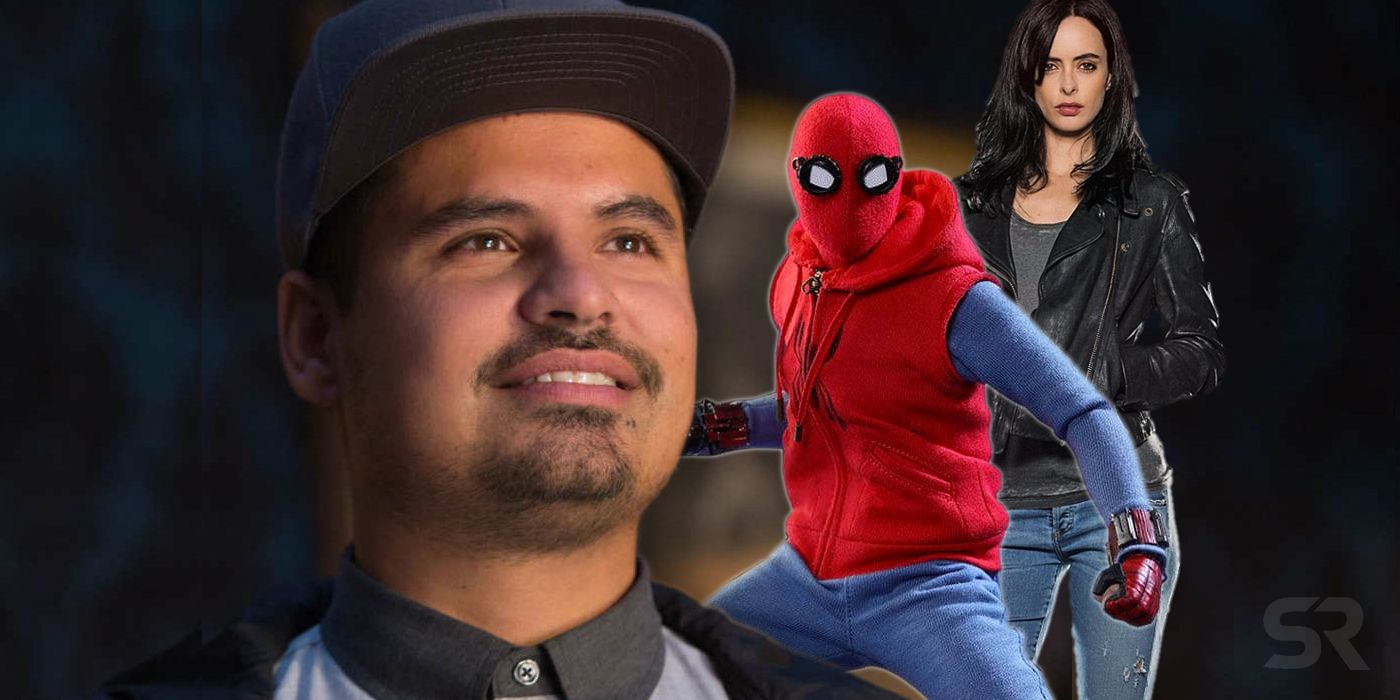
Related
Ant-Man’s Spider-Man Reference: Who Else Was Luis Talking About?
Ant-Man’s end scenes teased the existence of heroes who jump, swing, and crawl up walls. But was this more than just a cool nod to Spider-Man?
21 Thor (2011)
Thor
Chris Hemsworth’s MCU debut as the Asgardian God of Thunder saw him navigating the ultimare sibling rivalry and parental expectations. Kenneth Branagh’s theatrical adaptation of the long-running Marvel Comics deals with Thor’s quest to prove himself worthy. Banished to Earth for his impulsiveness and tendency to violence, Thor must earn his destiny, while Tom Hiddleston’s Loki tries to destroy him.
- Release Date
- May 6, 2011
- Runtime
- 115 minutes
For a movie that every subsequent outing for the character seems to have been trying to somehow “correct“, Thor really is a forgotten MCU hit. The Dark World attempted to go more grounded, Ragnarok more all-out comedy, but they miss how Kenneth Branagh pretty much nailed the balance between both first time out. The story mixes the fish-out-of-water comedy with faux-Shakespearean drama (the plot as much as the dialogue is rooted in classical storytelling) well, the filmmaking choices (dark-lit sets and dutch angles) accentuate the otherworldly feel, and it was overall the most earnest embracing of comic weirdness up to that point.
Chris Hemsworth isn’t as out-of-the-gate perfect as Thor compared to Evans’ Cap or RDJ’s Tony Stark, but the sillier Earth-side of the story allows him to ease into the role. On the other side, Tom Hiddleston is a revelation as Loki, who’s never been more complicated than here, and the supporting cast like Anthony Hopkins as Odin is inspired. There’s no specific weak aspect, more a general sense of good-not-great; Jane Foster is a solid love interest but underserved, the same with the Warrior’s Three.
Thor is an overall affable movie, balancing big world building for the franchise and universe (the “magic as science” descriptive is non-aggressively pushed) with more internal character debates. It was only by Avengers: Infinity War where Thor truly became a worthy MCU lead, but you feel that if the ideas raised by his first movie had been followed through on, he’d have reached that point a lot sooner.
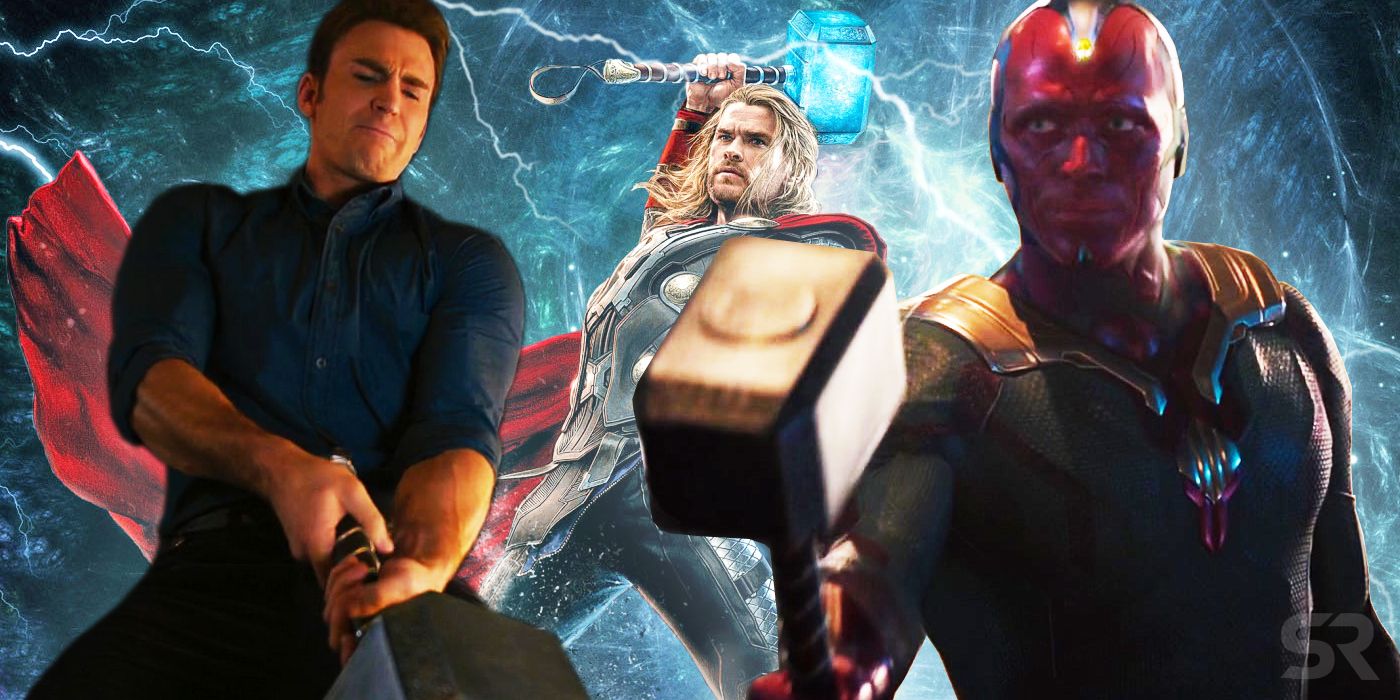
Related
Every MCU Character Who’s Lifted Thor’s Hammer
Thor’s hammer Mjolnir was the most celebrated weapon in the MCU. Who else besides the God of Thunder did the hammer deem worthy to lift it?
20 Thor: Love and Thunder (2022)
Thor: Love and Thunder
Thor: Love & Thunder is the fourth Thor film in the Marvel Cinematic Universe and director Taika Waititi’s second outing with the character. The movie finds Thor (Chris Hemsworth) on a journey to find inner piece. But when Gorr the God Butcher (Christian Bale) goes on a killing rampage against the gods, Thor is thrown back into the action. Tessa Thompson returns as Valkyrie, as does Waititi’s Korg. Natalie Portman also returns to the franchise for the first time in nine years as Jane Foster, who transforms into the Mighty Thor to wield Mjolnir.
- Release Date
- July 8, 2022
- Runtime
- 118 minutes
Though critically maligned and ranked in the same bracket as The Incredible and Thor: The Dark World on Rotten Tomatoes, Thor: Love and Thunder scores the highest slot of the franchise. It takes what worked for Thor: Ragnarok and dials it all up a notch, with director Taika Waititi gifted more creative freedom. While that manifests in a new level of weirdness and even more quirky comic beats, it’s still rather obvious that the reins were still. The pre-release promise of Love and Thunder being “so gay!” doesn’t quite land, and details of a four hour cut with even more strangeness mean there’s still the same distracting ghost of what could have been in the background as there was for its predecessor.
Love and Thunder‘s high points are found in its redemptive story for Natalie Portman’s Jane Foster, and the delightful comedy of her awkward transition into superheroism, as well as Christian Bale’s incredible performance as Gorr the God Butcher. In the case of the latter, it would have been even better to see more, but Bale balances pathos with outright oddness in the most convincing way. Adding to that Chris Hemsworth’s still charming God of Thunder – who could go on forever at this stage – and a collection of great supporting roles, and the cast has few downsides. Tessa Thompson’s Valkyrie is perhaps a little undernourished (and her promised romantic arc fails to get off the ground), but new additions like Russell Crowe’s Zeus do justify difficult decisions in cutting other subplots. And Love and Thunder‘s post-credits pay-off to that story is a thing of true joy.
Even if this proves to be the last the MCU sees of Taika Waititi’s brand of superhero moviemaking, Love and Thunder was a good account of Marvel allowing a director to do mostly what they want. Yes, it has its flaws, but the low critical rating feels more like a reflection of a change in perception – and the willingness to accept that not every MCU movie needs a waterfall of hyperbole – than an actual drop in quality.
19 Shang-Chi And The Legend of the Ten Rings (2021)
Shang-Chi and the Legend of the Ten Rings
Shang-Chi and the Legend of the Ten Rings is the 26th installment in the Marvel Cinematic Universe. Simu Liu plays Shaun (Aka Shang-Chi), a valet living and working in San Francisco, along with his friend Katy (Awkwafina), when one day, his past comes knocking back at his door. To protect himself and Katy, Shaun reveals himself to be Shang-Chi and his lineage, with his father being the actual “Mandarin,” the leader of the Ten Rings criminal organization. His father is now reaching out to him, and his estranged sister and Shaun must head back to China to save his sister and figure out his father’s true motivations. Shang-Chi was one of the first films in the fourth phase of the MCU.
- Release Date
- September 3, 2021
- Director
- Destin Cretton
- Runtime
- 132 minutes
It may be the second movie in MCU Phase 4 (and sixth release counting the Disney+ shows), but Shang-Chi and the Legend of the Ten Rings feels very much like old-school Marvel. There’s that care paid to a lesser-known character in a singular story that hearkens back to the wins of Marvel’s Phase 1 before the formula became overly prescriptive and shared universe requirements started to dominate the storytelling. That comes with all the discussed positives and negatives (the action is tailored to kung-fu stylings, yet the finale inevitably falls into a suffocating CGI kaiju fight) but having ten years of refinement ultimately serves as a tone and scale reset Marvel desperately needed.
What may be most noteworthy about the protagonist – aside from his kicks – is the seriousness. Simu Liu doesn’t quip, taking talk of millennia-old fathers and alternate dimensions guarded by moving trees in his stride with an unexpected self-sincerity. Instead, the comedy duty is centered almost exclusively on Awkwafina’s Katy, who manages to steal the majority of her scenes. This diversion from the Whedon-dominated Marvel process is hardly revisionist or groundbreaking, but it is refreshing and rare even in the more successful solo movies (Doctor Strange and Black Panther both succumb to it). Even its more overt MCU connections are either fun asides or made to stand fully on their own.
Where the film could have been stronger is in fully embracing Shang-Chi’s own story. Liu sometimes gets lost in the bigger world-building and there’s a paradoxical overreliance on flashbacks to underscore impactful moments yet the emotional beats that stand alone lack the full heft. But, being in the spirit of Phase 1, these are knocks not breaks, setting up a promising future for Shang-Chi.
18 Iron Man 3 (2013)
Iron Man 3
Iron Man 3 pits genius-billionaire-playboy-philanthropist Tony Stark (Iron Man) against the Mandarin, an enemy whose reach knows no bounds. When Stark finds his world destroyed by his mysterious antagonist, he embarks on a dangerous quest to find those responsible. His journey will test his character at every turn. With his back against the wall, Stark is left to survive by his own devices, relying on his ingenuity and instincts to protect those closest to him and determine whether or not the suit makes the man or if Tony himself is the hero.
- Release Date
- May 3, 2013
- Director
- Shane Black
- Runtime
- 130 Mins
Iron Man 3 is far and away the most underrated movie in the MCU. Coming off The Avengers and returning straight to standalone stories with the odd nod to Thor and Captain America was a tricky ask, but Marvel went for broke with what will likely be the last Robert Downey, Jr-led outing. It’s a Shane Black movie through and through, from the stylish ephemera – framing narration, Christmas setting – to more fundamental aspects – the wry humor, the focus on buddy-cop escapades – and doesn’t fall into many of the Marvel formula pitfalls that later movies would (the Whedon influence was yet to sink in). Plainly, Iron Man 3 has one of the most distinct personalities in the series (even more so than Guardians of the Galaxy).
Much of the backlash rests at the feet of the Mandarin. The movie marketed itself on seeing Tony Stark showdown against a modern update of his archnemesis, and that’s exactly what it delivered; just not in the way many were expecting; the Osama Bin-Laden channeling Mandarin was just an actor, the Eastern-influenced Ten Rings all part of a terrorist front by vengeful Western tech genius Aldrich Killian. But while that’s not accurate to the comics, it is to the real world. Terrorism is a performance and the real threats to our society are at home, making the Mandarin as thematically rich as it is hilarious.
If Iron Man 3 has a villain problem, it’s everything else. Maya Hansen was the secret big bad in earlier drafts but studio rewrites make her character-less, the Extremis soldiers are vague goons without any clear weaknesses, and while Killian being a suave rich guy is accurate to what the movie is spearing, it’s doesn’t make for an interesting final battle.
17 Doctor Strange (2016)
Doctor Strange
Enter the world of Dr. Stephen Vincent Strange (Benedict Cumberbatch), a world-famous neurosurgeon whose car accident left him unable to use his hands. As he desperately tries to find a cure to enable his hands to perform operations again, he comes across a world that leads to another dimension. After being taught about the different dimensions and learning about the constant threat that looms on Earth, he began to embrace his role as the humble protector. Taking after the responsibilities of the Ancient One who trained him before her demise, Strange goes on to become the Sorcerer Supreme himself.
- Release Date
- October 25, 2016
- Director
- Scott Derrickson
- Runtime
- 126 minutes
It’s easy to be glib about Doctor Strange. An origin story for an arrogant, sarcastic, rich man with a goatee who suffers a life-changing injury but directly through that discovers new powers – on paper it transplants Iron Man‘s formula to Stephen Strange to a tee. Yet this is a wholly unique film that simply uses the tropes to tell a much more offbeat story than Marvel was used to. Benedict Cumberbatch is easy casting but gives his all, as do the often underutilized cast, while the humor that waylaid many Phase 3 movies is worked into the character beats more organically than most.
While this movie is often compared to Inception, the Christopher Nolan this Doctor Strange has most in common with is actually Interstellar: the idea that time is the true enemy and death the ultimate fear is a heady topic for a superhero blockbuster, yet it’s one that Scott Derrickson takes to its natural conclusion with the Ancient One’s reflective death and series high-mark “Dormammu, I have come to bargain.”
Going from themes to visuals is where Doctor Strange loses itself a little. Derrickson certainly offers up some strikingly weird imagery, yet a lot of it is odder for the sake of it than having some greater visual purpose. Claims Doctor Strange was “like nothing you’ve ever seen” act like 2001: A Space Odyessy didn’t do it better almost 50 years earlier. This problem is most evident in the action, which are rather flat chase scenes with impressive CGI grafted on them; only Marvel would have a sequence where characters must defend against reversing time and set it in a bland alley set.
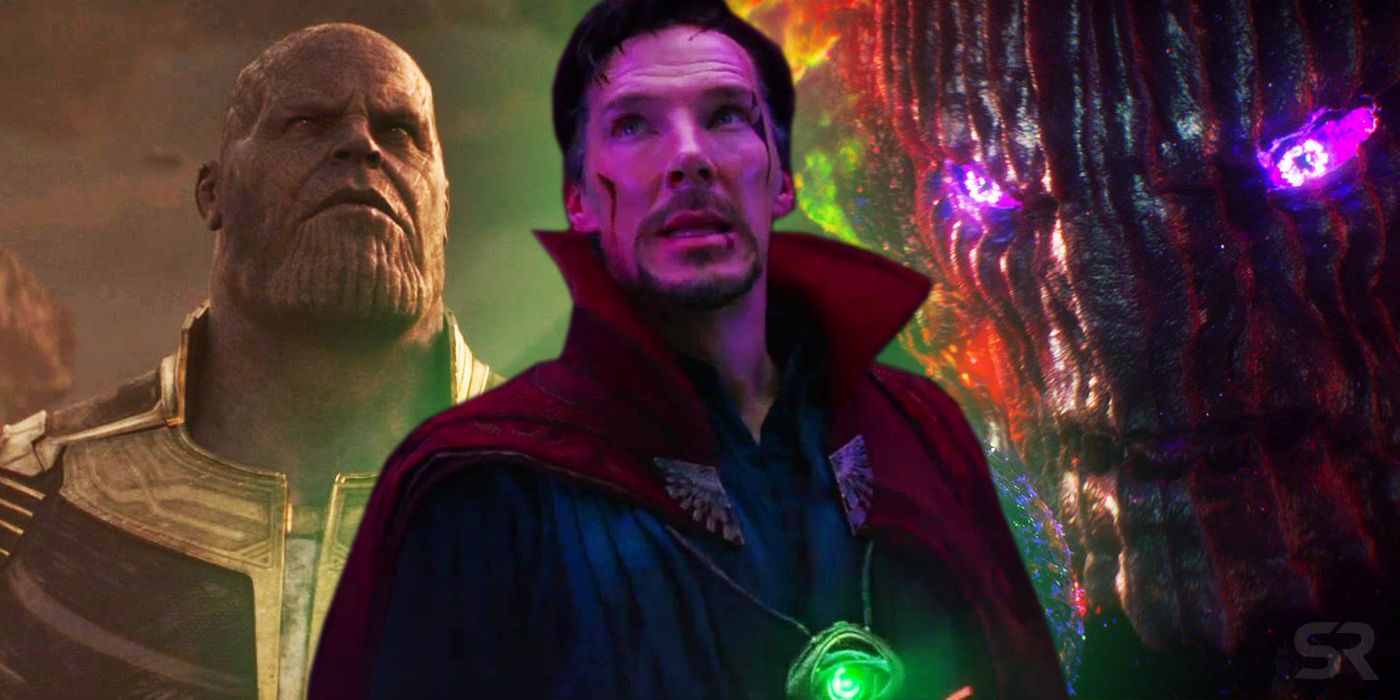
Related
Why Didn’t Doctor Strange Trap Thanos In A Time Loop?
Doctor Strange beat Dormammu by trapping him in a time loop. Why didn’t he repeat the trick on Thanos in Avengers: Infinity War?
16 Deadpool & Wolverine (2024)
More than two years and 10 movies into Marvel’s Multiverse Saga, not enough of the MCU films have utilized the multiverse to tell epic and heartfelt stories. That changes with Deadpool & Wolverine. In his foray into the MCU, Ryan Reynolds’ Deadpool is in danger of losing everyone he cares about, and he sets off across the multiverse to find a version of Wolverine who’s able to help him save his world. That happens to be a grief-stricken and grumbling Wolverine, played by Hugh Jackman. The movie weaves together their stories, until they come together in the third act to overcome their weaknesses and save the world.
Deadpool & Wolverine has a somewhat simplistic story, though it’s executed well, but it’s everything around it that really elevates this movie to one of the MCU’s better films. The multiverse allows for the inclusion of characters who have been seen on screen in more than two decades, as well as the introduction of highly anticipated characters from Marvel Comics. All of them bounce well off of Reynolds’ Deadpool, and the Merc with a Mouth is the perfect shepherd through the multiverse, cracking jokes that range from exceptionally niche to so broad your grandma will get them.
That said, it’s Reynolds and Jackman who anchor Deadpool & Wolverine. Their team-up has been long-awaited, and it doesn’t disappoint. In fact, it lends itself to not only some of the movie’s best action scenes, but its best character moments as well. While the multiverse offers some shine to the movie, Reynolds and Jackman give it its heart. Deadpool & Wolverine is, ultimately, a wild and fun ride through the multiverse. Finally.
15 Black Panther: Wakanda Forever (2022)
Black Panther: Wakanda Forever
Black Panther: Wakanda Forever is the sequel to the 2018 film Black Panther and is part of Phase 4 of the Marvel Cinematic Universe. Gripping with the passing of their king, the nation of Wakanda attempts to figure out how to move forward with Queen Mother Ramonda (Angela Bassett) and Princess Shuri (Letitia Wright) at the helm. However, a nation in grieving is not observed by all, as soon Wakanda comes under attack by the underwater civilization of Talocan, led by Namor (Tenoch Huerta.) Wakanda will enlist allies outside and from within to push back this new invading threat and ensure that Wakanda truly does live on forever.
- Release Date
- November 11, 2022
- Director
- Ryan Coogler
- Cast
- Winston Duke , Dominique Thorne , Michaela Coel , Danai Gurira , Angela Bassett , Lupita Nyong’o , Letitia Wright , Martin Freeman
- Runtime
- 2h 41m
On reflection, it’s fair to say that Black Panther: Wakanda Forever was one of the MCU’s most anticipated movies of all, given a near-impossible mission to not only follow the financial and critical success of its predecessor, but also to hold up a mirror to the collective grief at Chadwick Boseman’s death. Ryan Coogler’s sequel could have been a mournful eulogy to the MCU’s T’Challa, putting aside a broader story for the sake of careful reflection and the issue of legacy, but Coogler aimed bigger. Wakanda Forever is not only a reflection of loss, but also a claws-out superhero event that packs in all-out war alongside a tender, deeply personal story.
Wakanda feels bigger thanks to the introduction of its neighbors – the kingdom of Talokan and its king Namor (Tenoch Huerta Mejía), who succeeds Michael B Jordan’s Killmonger as a complex figure straddling the whole moral spectrum at times. There’s also a very definite weight to the shadow of T’Challa, not only in Black Panther’s succession (which Letitia Wright’s Shuri convinces of entirely), but also his legacy as a man, thanks to the revelation of Wakanda Forever‘s ending. Sure, there are some missteps (like the death of Queen Ramonda), but the overall picture if of an MCU sequel that aims higher and just about manages its lofty aspirations.



